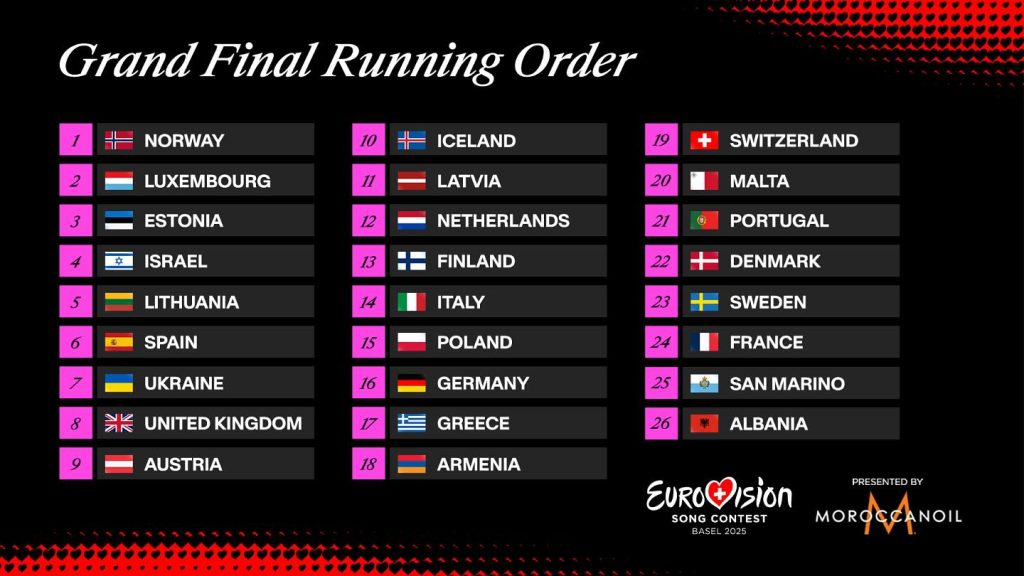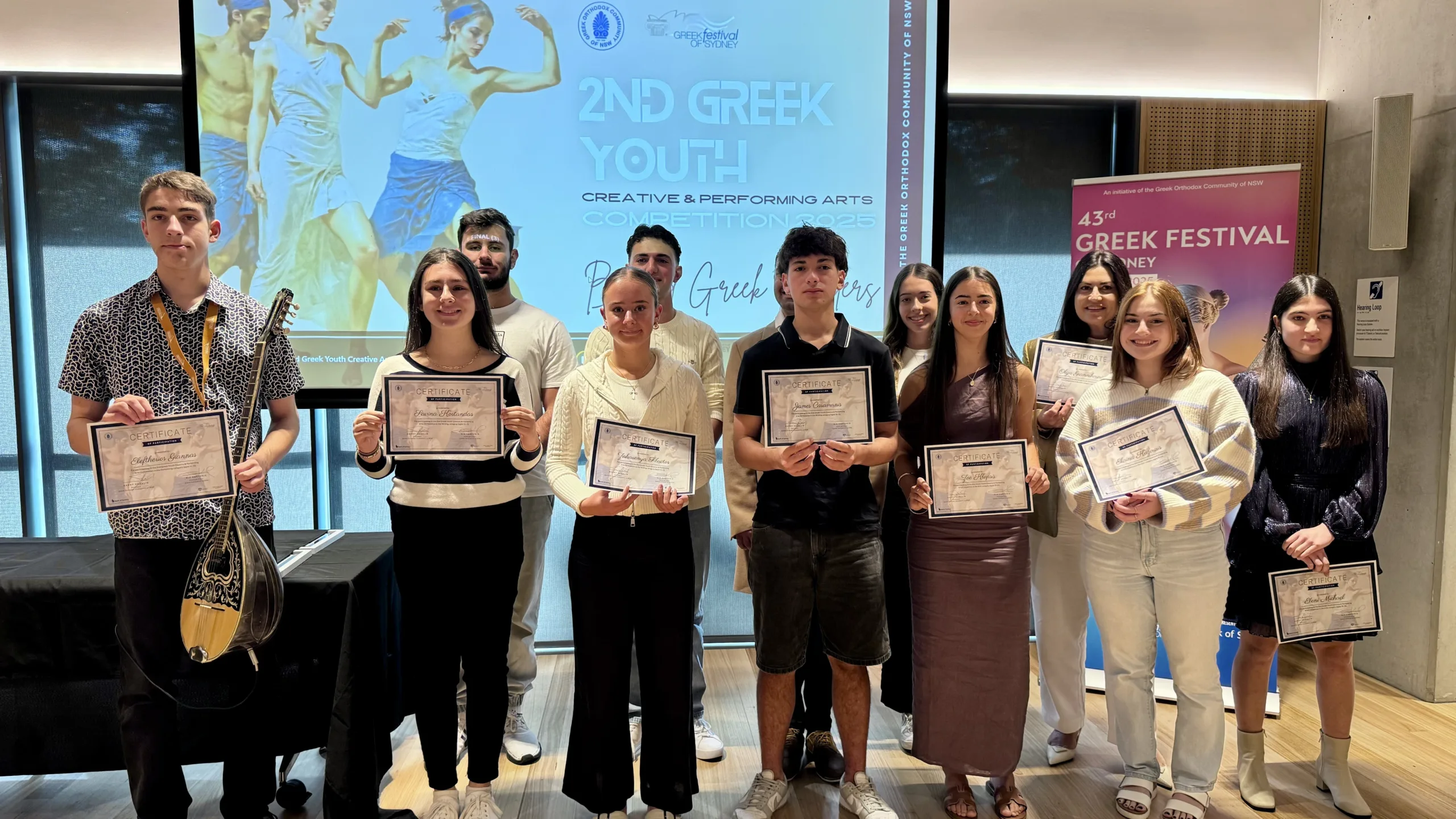The second semifinal of the 69th Eurovision Song Contest, held Thursday night at the St. Jakobshalle in Basel, Switzerland, delivered a night of unexpected twists, emotional performances, and a well-deserved triumph for Greece. Represented by 22-year-old Klavdia, Greece clinched the 10th and final qualifying spot for Saturday’s Grand Final with her hauntingly performed ballad “Asteromata.”
Greece Shines in a Sea of Surprises
Klavdia’s qualification was far from a given. Singing entirely in Greek — a rarity in recent Eurovision history — she delivered a technically flawless and emotionally resonant performance, enhanced by a strikingly effective stage direction. “Asteromata” becomes the first Greek-language song to reach the final since Giorgos Alkaios’s “Opa” in 2010.

Klavdia, representing Greece, performs “Asteromata”, during the second semi-final of the 2025 Eurovision Song Contest, in Basel, Switzerland, May 15, 2025. REUTERS/Denis Balibouse
In a contest increasingly dominated by spectacle and social messaging, Klavdia’s reserved and sincere approach stood out. Throughout the season, she avoided dramatic public statements or gimmicks, focusing instead on her artistry — a strategy that may have worked to her advantage with the public, which had the sole voting power during the semifinals.
The Ten Finalists from the Second Semifinal
Out of 16 participating countries, the ten acts that qualified — in the random order announced — are:
- Lithuania
- Israel
- Armenia
- Denmark
- Austria
- Luxembourg
- Finland
- Latvia
- Malta
- Greece
This lineup came with significant surprises. Notably, Australia — celebrating ten years of participation in the contest — failed to qualify, as did Serbia, Ireland, and the Czech Republic, all previously seen as strong contenders.
Conversely, unexpected entries like Denmark’s Sissal, Latvia’s folk trio Bun Mar Laimi, and Armenia’s shirtless showman Parg — directed by Greek choreographer Irini Damianidou — made it through, overturning pre-show predictions.
Also advancing were Malta’s Miriana Conte, dubbed the “Cardi B of the Mediterranean,” and Finland’s Erika Vikman, who is rapidly becoming a favorite to win according to bookmakers, drawing comparisons to past winners like Lordi.
Social Buzz vs. Bookmaker Odds
While betting odds continue to place Sweden’s KAJ (with their quirky ode to Finnish saunas), Austria’s male soprano JJ, and Dutch superstar Claude at the top, a new wave of momentum is building for underdog entries. Spain’s Melody, dubbed the “Eleni Foureira of the Iberian Peninsula,” is gathering traction, as is Poland’s Justyna — returning to the competition exactly 30 years after her debut — and Albania’s electro-folk duo Shkodra Elektronike.
France’s Louane, performing the emotional ballad “Maman,” is also expected to finish strong, as is Israel’s Yuval Raphael, a survivor of the 2023 Nova Festival attack. However, Israel’s participation remains controversial, drawing boos from some audience members during a rehearsal earlier in the day. The incident prompted a formal statement from Swiss public broadcaster SRF.
Final Running Order and Greece’s Slot
With the semifinal results in, the European Broadcasting Union (EBU) and Swiss broadcaster have finalized the running order for Saturday’s Grand Final. Greece will perform 17th, positioned between Germany and Armenia — a favorable second-half slot, often seen as a boost in the voting process.
The final will be opened by Norway and closed by Albania.
What to Expect in the Grand Final
Bookmakers currently place Greece between 15th and 17th in overall odds — a respectable position but one that leaves room for surprises. With a strong vocal performance, subtle staging, and growing public support, Klavdia may yet exceed expectations on Saturday night.
As the countdown to the Grand Final ticks down, one thing is clear: this year’s Eurovision is anything but predictable. With bold debuts, surprise exits, and underdog victories, the stage is set for an unforgettable showdown.








